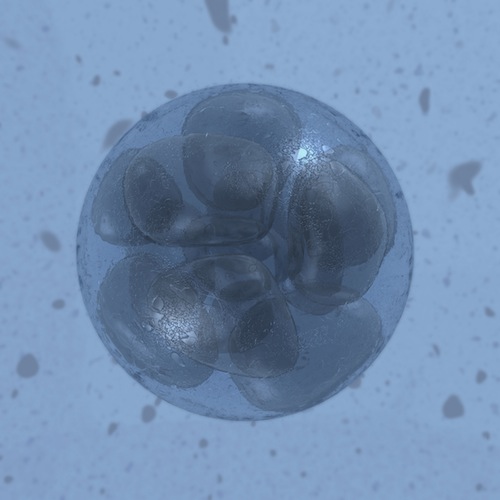Making breakfast the biggest meal of the day helped women with PCOS control insulin resistance, which helps balance hormones, a new study found.
Tag: new study
Hormone Therapy Not for Disease Prevention: Study
Hormone therapy may help some women manage hot flashes during menopause. But it should not be used to prevent conditions like heart disease and dementia, a new study confirms.
Average Out-Of-Pocket Fertility Costs Top $5,000
Couples starting infertility treatment can expect to pay an average of more than $5,000 out of pocket for office visits, medication and related expenses, a new study of people attending San Francisco-area clinics suggests.
1 in 3 Doctors Still Needlessly Removing Healthy Ovaries, Study Finds
A new study from Baystate Medical Center found that one-third of gynecologists continue to recommend removal of healthy ovaries from women undergoing hysterectomies who haven’t yet entered menopause. This goes against recommendations of their own medical society, the American Congress of Obstetricians and Gynecologists, which advises against ovary removal in pre-menopausal women undergoing hysterectomies who aren’t at increased risk of ovarian cancer.
Many Young Women Use ‘Withdrawal’ for Birth Control
But new study confirms that it’s not good for preventing pregnancy.
Mammals Pick Offspring’s Sex to Maximize Number of Grandchildren, Study Shows
Mammals appear to have the ability to select the gender of their offspring for the benefit of their species, according to a new study that followed three generations of more than 2,300 animals from the San Diego Zoo.
Women Who Smoke During Pregnancy are More Likely to Have Sons with a Low Sperm Count
The sons of women who smoke are more likely to have low sperm counts, a new study has warned.
No Need For Bed Rest After IVF
Bed rest immediately after an in vitro fertilization (IVF) procedure, despite being common practice, did not help women ultimately have a baby in a new study.
Some Infertile Men Show Higher Cancer Risk, Study Suggests
Men who are infertile because they produce no sperm may have a higher-than-average risk of developing cancer, a new study finds.
Breakthrough for IVF? Selecting the Most Promising Embryos
 A recent study in Reproductive BioMedicine Online on 5-day old human blastocysts shows that those with an abnormal chromosomal composition can be identified by the rate at which they have developed to blastocysts, thereby classifying the risk of genetic abnormality without a biopsy. In a new study the same group has undertaken a retrospective study, using their predictive model to assess the likelihood of any embryo transferred resulting in a successful pregnancy, with very encouraging outcomes.
A recent study in Reproductive BioMedicine Online on 5-day old human blastocysts shows that those with an abnormal chromosomal composition can be identified by the rate at which they have developed to blastocysts, thereby classifying the risk of genetic abnormality without a biopsy. In a new study the same group has undertaken a retrospective study, using their predictive model to assess the likelihood of any embryo transferred resulting in a successful pregnancy, with very encouraging outcomes.
One of the greatest challenges in assisted reproduction is to find the one embryo, which can develop successfully. Now, combining time lapse imaging of IVF embryos cultured for 5 days to the blastocyst stage with trophoblast biopsy, it has proved possible to correlate the rate of blastocyst formation with chromosomal abnormalities. Such an approach should allow early and widely accessible non-invasive identification of the best embryo to place in the uterus. Read full article…